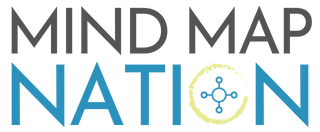How to Calmly Understand an Emerging Crisis
We’ve entered a new chaotic phase with the Russia Ukraine conflict. A whirlwind of uncertainty washed over me as I first heard the news. The last time I felt even remotely this way was in the beginning of the lock down back in March 2020. The world hasn’t been the same since.
In the beginning of an emerging crisis, we are guaranteed to be bombarded with tons of real time news from CNN, BBC, FOX, Twitter, Instagram, Facebook, you name it. It’s easy to be swept up in a whole gamut of emotions ranging from fear to disgust to worry and hope. The questions that flooded my mind were: what tools should I analyze the situation with? Which resources should I tap into? Who should I listen to? As I slowed my thinking and reigned in my emotions over my journal and coffee the following morning, these answers became more and more clear.
I ended up mapping out the following framework based on the approach I used to make sense of the pandemic.
Books over News, Practitioners over Pundits
📚 At the top of my preferred information source are books (vs news which is last) because they take far more effort to write and therefore the thinking is much more deliberate, especially from 2nd order thinkers who’ve done their homework and have the track record to back it up. I also value the words of practitioners over that of pundits any day. More than just out of principle, it’s a matter of incentives: practitioners have skin in the game vs pundits who monetize off click bait. It’s as simple as that.
The books I’m personally pouring over are:
The World: A Brief Introduction by Richard Haass, president of the Council on Foreign Relations. Haass spent decades in the trenches as a diplomat and advisor to G.W. Bush and Colin Powell. Merely four pages of his book illuminated so much for me on the source of Russia’s aggression (I shared an excerpt on my Instagram). If you have time to read only one book, I recommend this one.
Principles for Dealing with the Changing World Order by Ray Dalio, founder of the world’s largest hedge fund Bridgewater Associates. IMO every great investor has skin in the game and Dalio is a diligent student of history - I learned a lot about the economy through his Big Debt Cycles series. He’s also had early exposure to China and has followed its growth closely - this will be important in answering 2nd order questions below.
Prisoners of Geography by Tim Marshall. This book was recommended by my friend who studies geopolitics. The Amazon reviews are excellent and timely, so I’m excited to dig in.
Antifragile by Nassim Taleb (provides a general lens to think through questions around how systems, that includes nation states, respond to stressors and chaos)
📽️ Second priority is given to documentaries, educational YouTube videos (preferably published before the crisis actually breaks), and informed friends who work or study in a relevant field (in this instance, it’ll be international political science and relations).
Together, these “slow thinking” resources turn us into our own independent analysts by giving the historical context (ex: incentives, cultural identity, and world views) and educated lens to calmly evaluate 1st party accounts like speeches, interviews and, of course, news.
📰 The value that we can get from news itself are:
Popular views: These are the drivers of politics and policy, especially in our increasingly populist political environment.
Different perspectives: If Brexit and the 2016 elections taught us anything is to listen and take divergent views seriously.
Important developments. Things can change on the drop of a dime in our chaotic world. Once we have our bearings and educated lens, we can connect the dots better when key events do occur.
Guiding Questions
Finally, some guiding questions I’m asking myself as I research are:
What generally happens in such a scenario? This provides a baseline of what could happen next and serves to slow our thinking so that we’re not as reactionary to news.
Which angles should I analyze from? Is it from the perspective of the markets and economy? Politics, history or popular sentiment? Every unfolding crisis has multiple parallel stories, and which story you focus on matters. Because I’m a systems thinker, I naturally gravitate towards the market and economy (which are also not the same). The market is hyper sensitive to new information similar to a huge computer constantly calculating variables that affect the future. Input is information, output is prices. At the same time, I recognize the need to balance this zoomed out view with on-the-ground accounts and popular sentiments and cultural identity.
What are the 2nd order effects? For example, China is likely watching these events closely, particularly to the US response. If it’s a weak response, will it embolden China’s claims on Taiwan? How will Biden’s actions affect an already divided domestic US political landscape? Will the heightened Russian threat reverse the trend of European Union fragmentation?
Alright, that’s it for now - take care and keep a clear head my friends.
📺 For those of you who prefer video, I made a walkthrough on YouTube. This is my followup analysis using the framework.

